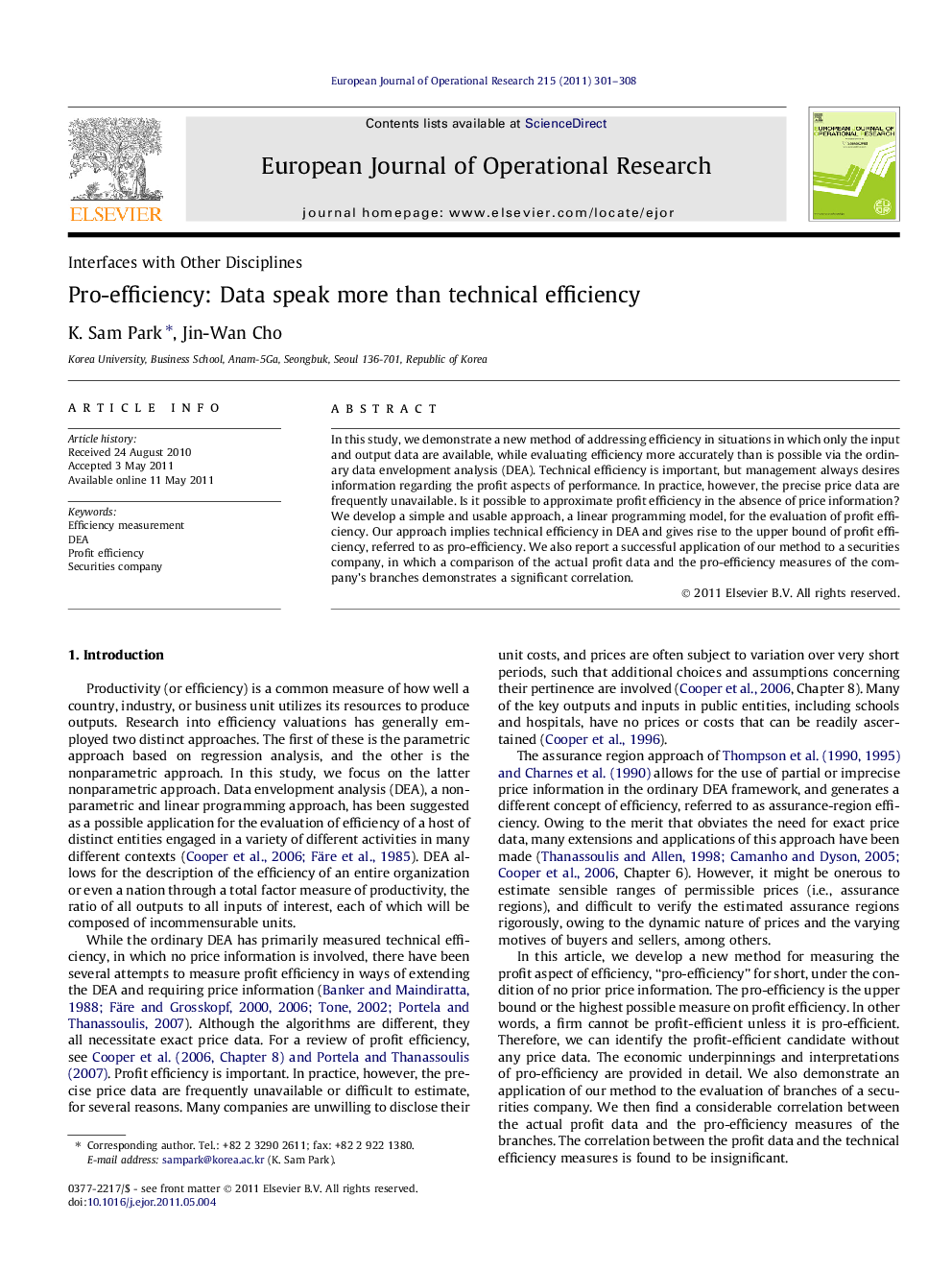| Article ID | Journal | Published Year | Pages | File Type |
|---|---|---|---|---|
| 480712 | European Journal of Operational Research | 2011 | 8 Pages |
In this study, we demonstrate a new method of addressing efficiency in situations in which only the input and output data are available, while evaluating efficiency more accurately than is possible via the ordinary data envelopment analysis (DEA). Technical efficiency is important, but management always desires information regarding the profit aspects of performance. In practice, however, the precise price data are frequently unavailable. Is it possible to approximate profit efficiency in the absence of price information? We develop a simple and usable approach, a linear programming model, for the evaluation of profit efficiency. Our approach implies technical efficiency in DEA and gives rise to the upper bound of profit efficiency, referred to as pro-efficiency. We also report a successful application of our method to a securities company, in which a comparison of the actual profit data and the pro-efficiency measures of the company’s branches demonstrates a significant correlation.
► In this study, we develop a mew method to measure the profit aspect of efficiency, pro-efficiency, under the condition of no prior price data. ► This is because the precise price data are frequently unavailable and management always desires information regarding the profit aspects of performance. ► We also report a successful application to a securities company, in which a comparison of the actual profit data and the pro-efficiency measures demonstrates a significant correlation.
